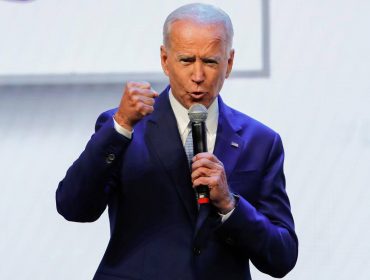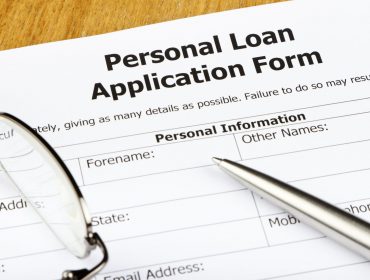Last week I traveled to Indiana talking to restaurant owners and workers about two proposals Senate Democrats have pledged to make a cornerstone of their policy agenda this year: a federal minimum wage of $15 an hour, and eliminating the tipped wage credit for servers.
The men and women I talked to have spent a year scrapping and clawing just to keep their small businesses afloat, and they made it clear to me that both of these Democratic proposals would be catastrophic for their small businesses and the servers they employ.
Democrats first tried to ram these radical changes through Congress by bending the rules of an arcane process known as budget reconciliation, leading the Senate parliamentarian to rule that a minimum wage hike could not be included in President Biden’s $1.9 trillion bill.
Speaker Nancy Pelosi, not content just to stuff that package with hundreds of billions in blue state bailouts and money for school districts who refuse to open their doors, pledged to include these job-killing wage policies in the House’s bill regardless.
Thinking ahead, Sen. Bernie Sanders, I-Vt., cooked up a creative new gambit: if you can’t pass a wage hike, pass a tax hike to muscle companies into falling in line.
A federally-mandated minimum wage hike would mean more layoffs for servers and bartenders and more restaurant closures, dealing a death blow to an industry that’s already been so wounded by government interference during the coronavirus pandemic.
Following my visit to local restaurant owners in Fort Wayne, one restauranteur analyzed his financial records from 2019 and found that if the minimum wage were increased to $15, his $227,000 payroll expense would top $2 million.
Tabitha Gray, owner of Mancino’s restaurant in Fort Wayne, told me during my visit that if Democrats’ wage hike becomes law she will be forced to close her doors for good, leaving her 19 employees jobless.
Analysis from the non-partisan Congressional Budget Office revealed the scope of the economic destruction this policy would cause, concluding that a $15 minimum wage would kill 1.4 million jobs – putting many more people on the unemployment line than it would lift out of poverty.
This is slogan governing at its worst: a radical recalibration of where businesses are allowed to draw their bottom lines, driven by a desire to deliver on campaign puffery rather than by well-reasoned economic policy. Ultimately, it’s restaurant staff – servers, kitchen staff, and bartenders — that will bear the brunt of this short-sighted plan.
In a one-two knockout punch to the restaurant industry, Democrats are also trying to eliminate the tipped wage credit.
Currently, employers can pay tipped employees less than the minimum wage on the condition that, if a server fails to earn the state minimum wage in tips, the employer will cover the difference. Under the Democrats’ plan, tipping will become a thing of the past and steeply inflated prices the new normal.
Though Democrats claim this overhaul will help servers, the reality is the opposite. Simone Barron, a server in the restaurant industry for 30 years, described her experience in the Washington Examiner of moving from a restaurant following current federal law in Indianapolis to a restaurant in Seattle operating under Democrats’ proposed policy. Barron was alarmed to discover she earned less money under the Seattle restaurant’s system, despite the Washington state minimum wage exceeding $16.
“The increase in my base wage did not make up for the loss of tips. I did the math. I would have been better off waiting tables in Indianapolis and earning my customary 20% to 25% tip, even though my base wage was far lower,” Barron writes, noting that eventually the Seattle restaurant was forced to close its doors for good.
When Maine eliminated the tip credit in a 2016 referendum, servers flocked to public hearings to demand the tip credit be reinstated, with one server remarking that “without the tip credit, the income opportunities will not be there for me and I could not – and would not – do this job.” Maine legislators sided with the servers, and the tipped wage credit was reinstated.
It’s not hard to predict what would happen if both of these proposals were enacted. Immediately, restaurant payroll expenses would soar. As a result, restaurants would be forced to either cut staff or pass those expenses on to you through higher menu prices, driving down business.
High-performing servers who could previously expect to earn hundreds of dollars a night in tips would be capped at $15 an hour, diminishing their incentive to provide exceptional service and making it difficult for restaurants to keep high-quality staff.
The numbers bear this out. In the National Restaurant Association’s poll conducted this month, 84% of restaurant owners said a $15 minimum wage would force them to cut jobs and employee hours.
Ninety-eight percent said they would raise menu prices to cover payroll and, even if the increase is phased over years, eighty-two percent of restaurant operators said the initial wage increases would harm their ability to recover from the coronavirus pandemic.
During my visit to restaurants in South Bend, local restauranteur Kurt Janowsky said servers earn an average of $27 an hour through tips at his restaurants and pointed out that several New York restaurants that tried eliminating tips and paying a flat wage reversed course after losing business and staff due to the same economic forces that would apply if this policy was established nationwide.
Enacting a $15 minimum wage and eliminating the tipped wage credit would devastate our already ailing restaurant industry and will hurt the restaurant staff these changes claim to be helping.
Anti-capitalist Democrats attempting to ram these radical policies into law should listen to the small business owners who will have no choice but to close their doors. Moderate Democrats from states where job creators are still respected must resist the pressure to join in on kicking restaurants while they’re down to fulfill someone else’s half-baked campaign promise.









